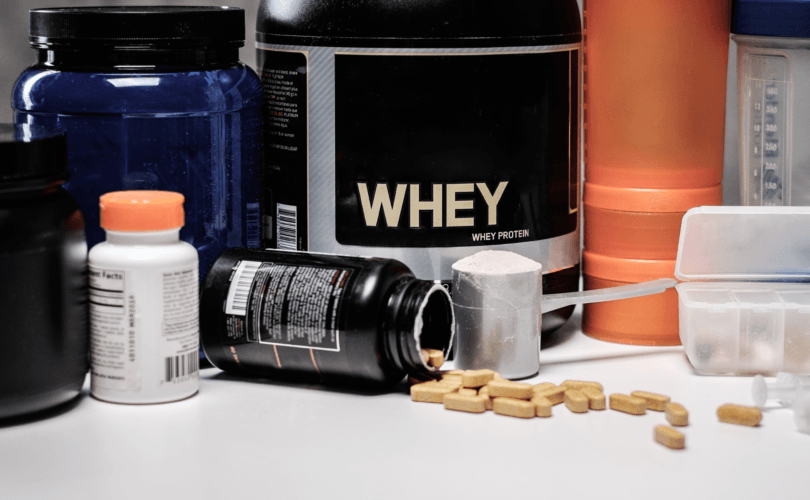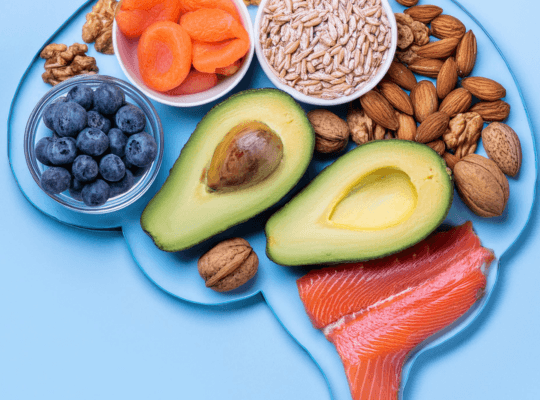Building a Digestive-Friendly Health Routine in Today’s Supplement-Heavy World: A Guide for IBS and Bloating
Navigating the vast world of health supplements can feel overwhelming, especially if you’re managing IBS or chronic bloating. With endless products and marketing claims, it’s crucial to understand what truly benefits your body versus what might aggravate symptoms. Creating a personalized, flexible routine that supports both digestive health and general wellness is not only achievable—it can also be a powerful way to reclaim your health.
In this blog, we’ll explore the fundamentals of building a routine that’s gentle on digestion, backed by scientific insights, and adaptable to your changing needs.
1. Start with Digestive-Friendly Basics
For those with IBS and bloating, simple, balanced health practices like hydration, nutrient-dense foods, sleep, and stress management are often the most impactful. Supplements can fill in specific gaps, but foundational habits create a stable base, particularly when it comes to managing sensitive digestive systems.
Why Simplicity is Essential for IBS
People with IBS often have a sensitive digestive system that can react negatively to overly complex routines or excessive supplements. According to a study from Gastroenterology Clinics of North America, simple dietary and lifestyle modifications, like balanced meals and adequate hydration, significantly reduce bloating and other IBS symptoms. This research emphasizes that gradual, gentle adjustments are often better than drastic changes.
Real-World Tip: Prioritize Hydration
Hydration supports digestion by helping food move smoothly through the gut, which can reduce bloating and constipation. Sip water consistently throughout the day rather than all at once, as large amounts with meals can dilute stomach acid, impacting digestion. If you find that dehydration worsens symptoms, a gentle electrolyte supplement with minimal sugar may also help.
2. Select Supplements That Support Digestive Health
Not all supplements are suitable for IBS and bloating. Certain vitamins and minerals, particularly when taken in high doses, can irritate the gut or cause additional symptoms. It’s essential to choose supplements carefully and stick with forms that are generally well-tolerated.
Beneficial Supplements for IBS
Here are a few commonly beneficial supplements for people with IBS and digestive sensitivities:
- Magnesium Glycinate: Magnesium helps support gut motility and muscle relaxation. Magnesium glycinate is gentler on digestion than magnesium citrate, which can have a laxative effect.
- Vitamin D: Low levels of vitamin D are linked to poor gut health, including IBS, according to a review in Nutrition Research Reviews. Supplementing with vitamin D can reduce inflammation and support immune function in the gut.
- Probiotics (specific strains): Certain probiotic strains, such as Bifidobacterium, have been shown to alleviate bloating and IBS symptoms. Studies indicate that these probiotics can improve gut microbiota balance, which is often disrupted in IBS patients.
Science-Backed Insights on IBS-Friendly Supplements
A study published in The Journal of Clinical Gastroenterology highlights that supplements supporting gut motility (like magnesium) and reducing inflammation (like omega-3s) can help IBS sufferers when used cautiously. However, it’s best to avoid “one-size-fits-all” products, as IBS responses are highly individual.
Real-World Tip: Introduce Supplements Gradually
When experimenting with new supplements, add only one at a time and observe its effects. For instance, try taking magnesium glycinate for a week and note any changes in bloating, cramps, or bowel regularity. This slow approach minimizes the chance of overwhelming your gut, allowing you to identify what works.
3. Stick to Quality Over Quantity
For IBS sufferers, taking a high number of supplements or large doses of certain nutrients can aggravate symptoms. Iron supplements, for example, can cause constipation, while high doses of vitamin C or magnesium citrate may lead to diarrhea or cramping. Instead, focus on moderate doses and only supplement when necessary.
Why High Doses Can Backfire
High doses of certain vitamins and minerals can irritate the digestive system, especially in those with IBS. Research from Nutrients warns against excessive supplementation, noting that nutrients like iron and vitamin C can exacerbate bloating and other IBS symptoms. This underscores the importance of being conservative with dosages and sticking to what’s essential.
Real-World Tip: Choose Essential Nutrients
If you’re looking to fill dietary gaps, a high-quality multivitamin tailored to your age or lifestyle stage may offer a balanced option. Additionally, aim to obtain nutrients from whole foods whenever possible, as they provide fiber and other compounds that benefit digestion more holistically.
4. Avoid Common Digestive Triggers in Supplements
With so many supplements marketed as “gut-friendly” or “bloat-busting,” it’s easy to assume they’re all safe. But additives like artificial sweeteners and fillers can be common irritants. Sugar alcohols (e.g., xylitol) and fillers such as maltodextrin may worsen bloating and IBS symptoms.
Common Digestive Triggers in Supplements
A study in Gastrointestinal Research and Practice highlights that sugar alcohols and certain fillers are often culprits for digestive issues in IBS sufferers. Such ingredients can disrupt gut motility and cause gas or bloating, so always check ingredient labels carefully.
Real-World Tip: Look for Clean Labels
Opt for supplements that are free of artificial sweeteners, colors, and fillers. If you’re unsure about an ingredient, consider researching it or consulting a healthcare professional to determine its impact on gut health. Clean supplements labeled “free of artificial sweeteners and fillers” are often more IBS-friendly.
5. Stay Adaptable as Your Needs Evolve
Our bodies change over time, and so do our nutrient requirements and digestive sensitivities. IBS symptoms can fluctuate based on life stages, dietary changes, and lifestyle factors. Keeping your supplement and health routine flexible is crucial to ensuring it continues to support you.
Science on Aging and Gut Health
Research from The American Journal of Clinical Nutrition shows that as we age, our digestive system undergoes changes in motility and nutrient absorption. This means older adults may require more vitamin B12 and calcium but need gentler forms of these nutrients to avoid GI discomfort.
Real-World Tip: Reevaluate Your Routine Regularly
Consider assessing your supplement and diet every few months to check in with how you’re feeling. Life events, stress, and seasonal changes can all impact IBS and bloating, so small adjustments may be needed. Regularly updating your routine ensures it stays aligned with your current needs.
Conclusion: Building a Digestive-Friendly Health Routine in a Supplement-Heavy World
Navigating supplements can be especially challenging for those with IBS or chronic bloating, but a thoughtful approach can make all the difference. Begin with foundational health habits, prioritize digestive-friendly supplements, and focus on quality rather than quantity. Over time, stay open to adjustments, as your body’s needs will evolve.
By choosing supplements with minimal additives, taking gentle forms of essential nutrients, and listening to your body’s feedback, you can create a health routine that truly supports your digestive system and overall wellness. Remember, health is a journey—one that’s best taken with patience, self-awareness, and adaptability.
Recommended Resources for Further Research
Here are some trusted sources to continue learning about supplements, digestive health, and IBS management:
- National Institutes of Health (NIH) – Office of Dietary Supplements: Offers nutrient-specific information, recommended dosages, and potential risks. NIH ODS
- Mayo Clinic: Provides evidence-based guidance on IBS, bloating, and gut-friendly supplements. Mayo Clinic Health Information
- International Foundation for Gastrointestinal Disorders (IFFGD): A comprehensive resource for managing IBS with dietary strategies and safe supplement guidance. IFFGD
Key Studies for In-Depth Understanding
- Tuck, C. J., & Vanner, S. J. (2018). Dietary therapies in IBS. Gastroenterology Clinics of North America, 47(1), 151-168.
- Mayer, E. A., Savidge, T., & Shulman, R. J. (2014). Brain–gut microbiome interactions and functional bowel disorders. Gastroenterology, 146(6), 1500-1512.
- Ford, A. C., Harris, L. A., Lacy, B. E., & Quigley, E. M. (2018). Systematic review with meta-analysis: The efficacy of prebiotics, probiotics, synbiotics, and antibiotics in irritable bowel syndrome. Alimentary Pharmacology & Therapeutics, 48(10), 1044-1060.
With these resources, you can make informed decisions and build a health routine that aligns with both your digestive needs and long-term wellness goals.






